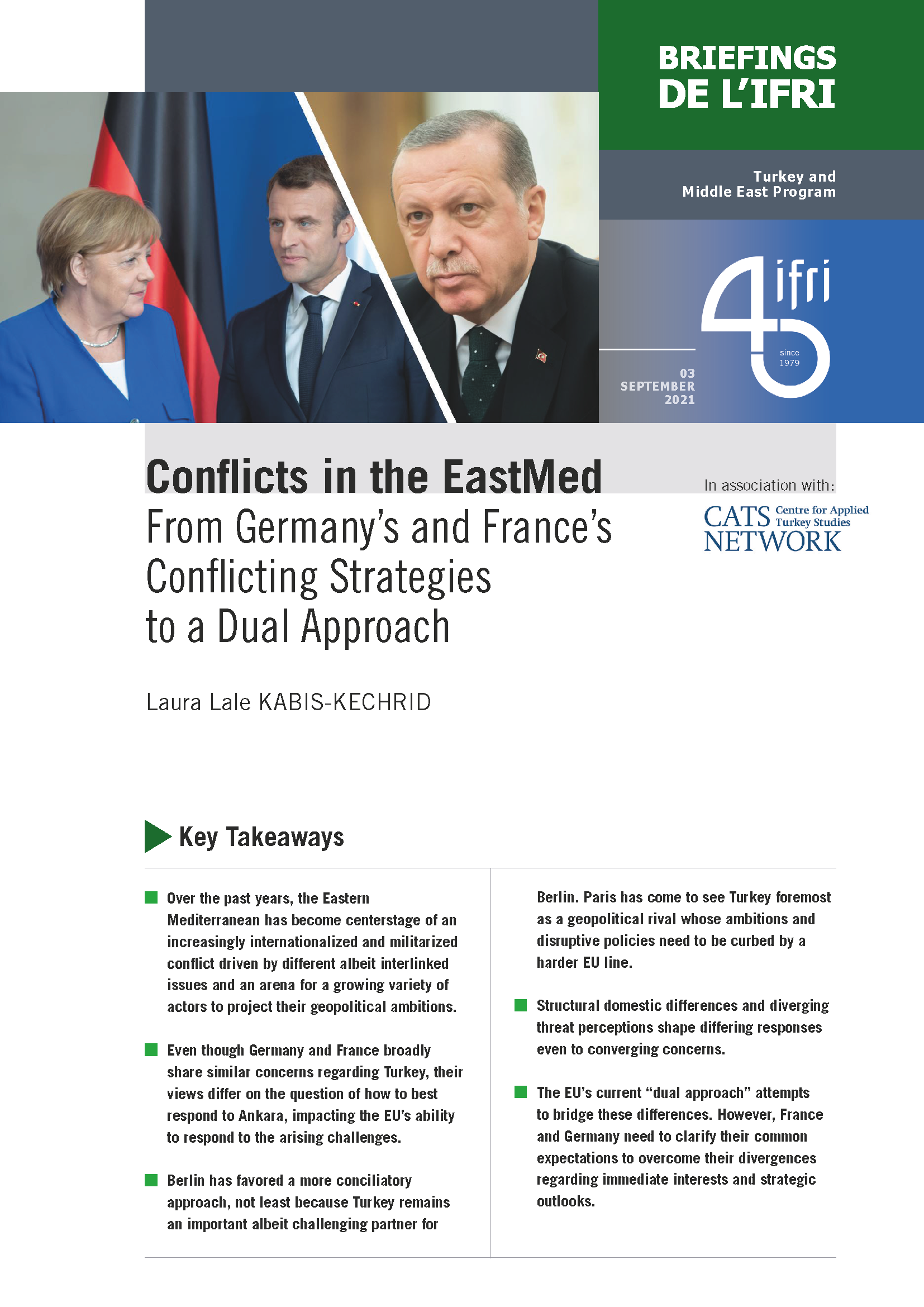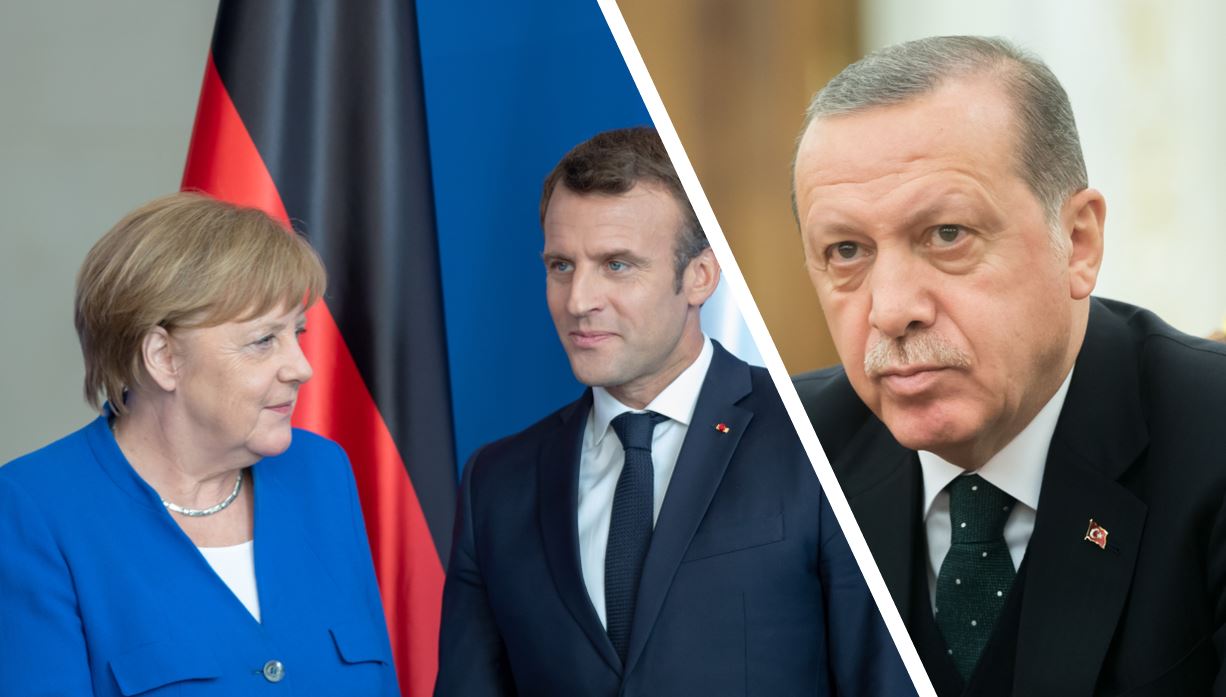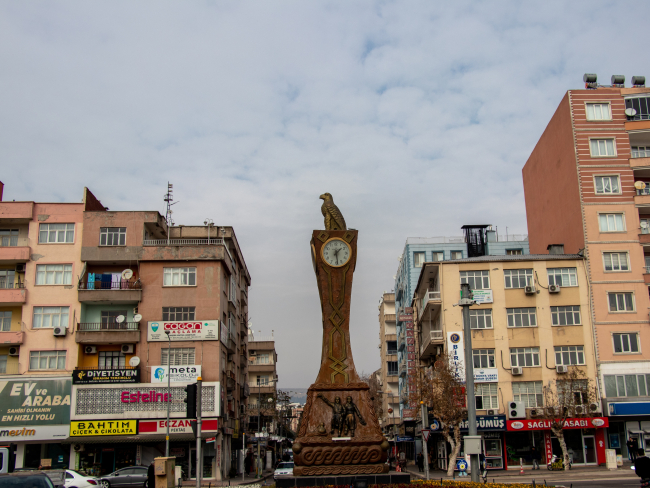Conflicts in the EastMed: From Germany’s and France’s Conflicting Strategies to a Dual Approach


- Even though Germany and France broadly share similar concerns regarding Turkey, their views differ on the question of how to best respond to Ankara, impacting the Europenan Union’s (EU) ability to respond to the arising challenges.
- Berlin has favored a more conciliatory approach, not least because Turkey remains an important albeit challenging partner for Berlin. Paris has come to see Turkey foremost as a geopolitical rival whose ambitions and disruptive policies need to be curbed by a harder EU line.
- Structural domestic differences and diverging threat perceptions shape differing responses even to converging concerns.
- The EU’s current “dual approach” attempts to bridge these differences. However, France and Germany need to clarify their common expectations to overcome their divergences regarding immediate interests and strategic outlooks.

Available in:
Regions and themes
ISBN / ISSN
Share
Download the full analysis
This page contains only a summary of our work. If you would like to have access to all the information from our research on the subject, you can download the full version in PDF format.
Conflicts in the EastMed: From Germany’s and France’s Conflicting Strategies to a Dual Approach
Related centers and programs
Discover our other research centers and programsFind out more
Discover all our analysesAdıyaman, the “Ownerless City”: Story of a Political Emancipation
Over the past two years, the city of Adıyaman has made headlines for two major reasons: first, its devastation by the earthquake of February 6, 2023, which struck between Turkey and Syria, and second, its significant political shift following the municipal elections of March 31, 2024.
The Evolving Role of Nuclear Rhetoric in Iran’s Strategic Calculus
How has the Iranian strategic discourse about nuclear weapons and deterrence evolved?
Turkey and France - Allies or Rivals: Opportunities to be Seized
As international relations have become increasingly unpredictable, the quest is to find a semblance of normality. Alliances are shifting as interests are changing. The so-called order established after the Second World War is being shattered by those who have given so much to create it. Global relations are being transformed by countries that wish to follow the rules and others that want to circumvent or ignore them. In this uncertain environment, it is therefore all the more crucial to find stable allies.

RAMSES 2025. Between Powers and Powerlessness
Never before have there been so many powers able to upset the international balance of power, and never before have the dominant powers seemed so powerless to counter the fragmentation of the world.







